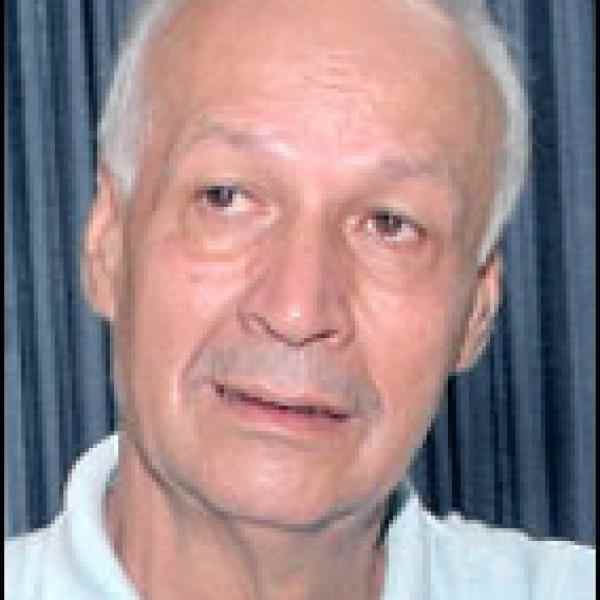前書き
In a fragile democracy fraught with corruption, Carlos Bareiro prepares ordinary citizens to push public institutions toward high standards of integrity and transparency.
新しいアイデア
Carlos Bareiro recruits and trains people’s groups in Paraguay to monitor and root out corruption in government. With his support, citizens found Contralorías Ciudadanas and join a network that connects their local efforts to a national movement for accountable public institutions. Members of the network share tactics, gather and present proof of corrupt dealings, and initiate legal action against corrupt officials.
Their efforts are beginning to change the way politics works in Paraguay: across the country, local candidates for office have stepped forward and asked to be monitored by the Contralorías, and several presidential candidates have done the same. As Carlos works to strengthen his citizen watchdog groups—currently active in one quarter of the country’s cities and towns—he prepares to expand his model internationally. By linking with social entrepreneurs and rights organizations throughout Latin America, he aims to foster a continent-wide citizen initiative for responsible government.
問題
According to recent rankings by Transparency International, Paraguay is the most corrupt nation in Latin America, and the fourth most corrupt in the world. Faced with overwhelming evidence and personal experience of bribes, blackmail, and other abuses of authority, the citizens of Paraguay have largely given up on the democratic process. As government officials and institutions lose credibility, more and more ordinary citizens turn away from the law. Illicit activities are so pervasive that many people find it difficult to distinguish between legal and illegal. From purchasing everyday goods to obtaining official documents, the line between black and white markets is thin and faint at best.
With corruption pervading the country, Paraguayans struggle to hold their officials accountable to standards of decency and transparency. Transnational institutions like the InterAmerican Development Bank have fought corruption in specific development projects, but these efforts are limited in scope and have been unable to change the overall situation. In the citizen sector, Transparency International has monitored corruption, and the Agentina-based Citizen Power has raised awareness of the need to oppose it, but no organizations have yet engaged common citizens in rooting out corruption and fighting for the strong and trustworthy public institutions they deserve.
戦略
Carlos Bareiro puts Paraguayan citizens at the head of a movement for accountable government. He provides them with the ability to audit their authorities and ensure that they obey the law, and if they don’t, to ensure that they are appropriately punished. Through his Contralorías Ciudadanas, groups of volunteers report abuses, monitor and participate in public budgeting, and lend support to honest officials. Carlos regularly brings monitoring groups together for trainings and idea exchanges, and he helps all Contralorías to develop funding structures to sustain their work over the long term.
Thanks to the work of Carlos and the Contralorías, two governors and several municipal officials have been removed from their positions on charges of corruption. Recent reports have exposed embezzlement and hidden assets at all levels of government. Drawing strength from such high-profile victories, the movement is quickly spreading: so far, Carlos has created 13 District Contralorías with chapters in more than a quarter of the cities and towns of Paraguay.
These groups combine their efforts through the National Network of Contralorías Ciudadanas, which maintains a database of all cases and tracks the reduction of corruption in each region. The Network uses the data it collects to support dozens of articles and broadcasts on corruption and Paraguay, spreading news of progress far and wide to encourage people to join the movement to create responsible democratic government. To further broaden the circle of their efforts, Contralorías partner with international watchdogs like Transparency International, as well as citizen-sector groups: they established close ties to associations of housewives and peasant groups, along with organizations working on consumer, environmental and human rights issues.
In the near future, Carlos intends to connect existing Contralorías to a wide body of knowledge on international law and legal investigation, bringing his volunteers together with likeminded organizations both within and outside the country to share experiences and ideas. In the longer term, he wants to expand his Network into new regions and help neighboring countries set up their own corruption-monitoring groups. He is currently pushing toward the creation of an International Network of Contralorías Ciudadanas, which has already attracted representatives from Argentina, Uruguay, Ecuador, Peru, El Salvador and Nicaragua.
人
Carlos began his engagement with social issues during his ecclesiastic studies in Buenos Aires from 1957 to 1969. His insistence on working with the poor through a movement that quickly spread to other seminary students, caused him to be expelled from the seminary. From that point he worked in the peripheral districts of Buenos Aires, later returning to Paraguay to work with the poorest peasants of Misiones and Ñeembucu. He co-founded several cooperatives and peasant organizations, and served from 1993 to 2000 as Executive Secretary of the National Social Pastoral. His first great project in this position was to expose the corruption of the governor of Misiones, and with the help of another minister he forced that governor to resign.
This victory was the starting point for the spread of the Contralorías Ciudadanas. For two years, Carlos directed a small USAID project that permitted him to cultivate the Contralorías and publish their work. Now, drawing support from another USAID project and a growing network of supporters, he seeks to expand the reach of his model to all districts of Paraguay and to the whole of Latin America.
